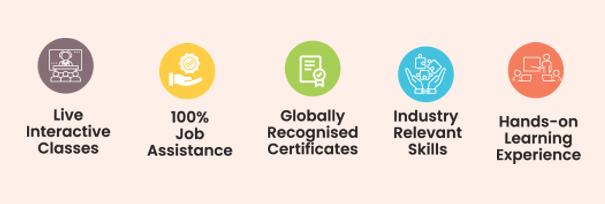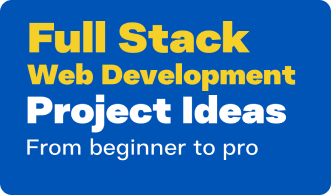Know About how to crack Kubernetes Interview with advanced top 10 interview Question
Talking about orchestration tools, Kubernetes tops the list. Kubernetes is amongst the most widely searched buzzwords of the IT sector and we have to say, the hype is not unnecessary. Everything about the term and what it does is exceptional. Some of the biggest companies and brand names in the world are using Kubernetes and these names include Huwaei, eBay, Yahoo Japan, The New York Times, Pokemon, etc.
When the list of its users includes such big and powerful names as mentioned above, it comes off as no surprise that experienced professionals are coming out to pursue a career driven by the power and knowledge of Kubernetes. While the value of a Kubernetes trained and certified professional is almost unmatched, there is yet a shortage of Kubernetes professionals.
There is a surfeit of reasons for this imbalance in supply and demand of Kubernetes professionals. While experienced specialists of the IT sector are always looking for ways to give their career a boost in the right direction, and they say, the right direction is always upwards.
The demand of Kubernetes as well as the importance of it is known to all, there are few who work right for it. studying and training for a certification is not easy, but what is more difficult is making your certification count after having gotten it. Using the certificate to bring a positive job or position change is an art and that includes preparing yourself to the brim.
It is your interview that holds the supremacy over the decision whether you get the job or not. This blog will throw light on 10 most frequently asked Kubernetes interview questions:
Q 1. Is there any difference between Kubernetes and Docker?
While the two are different tools and serve different purpose, you will come across a lot of people who will claim these two to be same. Also, you are more likely to find a lot of articles and blogs stating Kubernetes vs Docker, irrespective of the fact they are different.
The interviewer will ask you this question and you should prepare it on the basis of – GUI, auto scaling, rollbacks and rolling updates, logging and monitoring, cluster configuration and installation, scalability, load balancing, and data volumes.
Q 2. What is the connection between Kubernetes and Docker?
As already established, these two tools share come connection. There are a few pointers which can be established in the interview regarding their co-dependency to gain the attention of your interviewer.
Q 3. Name the best security measures followed while using Kubernetes.
Keeping information safe the amongst the priority of every company and as an expert Kubernetes professional, you should know the security measures to be followed. Here are some:
- Restrict access to ETCD
- Implement network segmentation
- Limited direct access to nodes
- Regular security updates to Environment
- Regular security vulnerability scanning
Q 4. What is Cloud Controller Manager?
The Cloud Controller Manager is in charge for network routing, handling communication with primary cloud services, persistent storage, and using core Kubernetes specific codes toextract cloud-specific code, among others. Amongst other details, you should focus on the different categories of cloud controller manager:
- Node controller
- Volume controller
- Route controller
- Service controller
Q 5. Name the varied types of services offered by Kubernetes.
Every tool developed serves the main purpose of providing services to its users. Being such a famous tool, Kubernetes must have a great deal to offer and as a Kubernetes professional, you should know about them:
- Cluster IP Services
- Node Port Services
- Load Balancer Services
- External Name Services
Q 6. What do you know about ETDC?
Written in Go Programming language, ETDC is what helps store the configured data of the cluster. Thus, with this configured data, one an represent and learn more about the state of position of the cluster anywhere, anytime. Thus, making it an important part of Kubernetes.
Q 7. What are the key features of Kubernetes?
Being such a well adored orchestration tool, Kubernetes is bound to have a host of key features and as a Kubernetes expert looking to make a career out of it, you should know them.
- Automated Scheduling
- Automated rollback and rollouts
- Self-Healing capabilities
- Load balancing
- Horizonal scaling
Q 8. Explain Minikube.
The smaller aspects of any tool are actually the ones that truly matter. As for Minikube, it is a tool which makes the process of running Kubernetes locally easier and swifter. Thus, a single node cluster can be run inside a virtual machine with Minikube.
Q 9. What do mean by Container Orchestration?
When multiple microservices, which are put in individual containers, are made to work in absolute harmony with one another, it is known as container orchestration. The working together of these containers fulfils the desires of a single server and makes the task an easier one to accomplish.
Q 10. What is Kubernetes?
Well, this is a but obvious question. And while this question might look pretty easy, it is always to be prepared in advanced so that you use all the correct terms to describe it.
Kubernetes is an open source and portable platform, which is also known as an orchestration tool. It is written in Go Programming language and helps in automated scaling of workloads. Kubernetes groups containers into logical units for easy access to companies. While it was the brainchild of Google, it has now been donated to CNCF.
We hope you benefit from this blog on the 10 most frequently asked Kubernetes interview questions and get your learning and working shoes on for the hard work that is yet to come your way.






